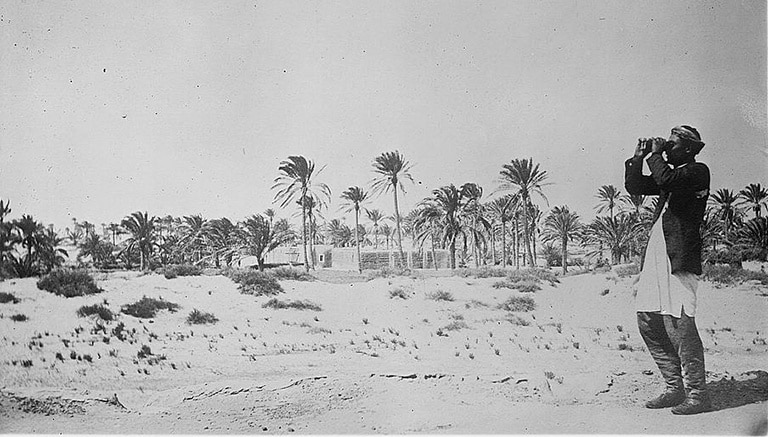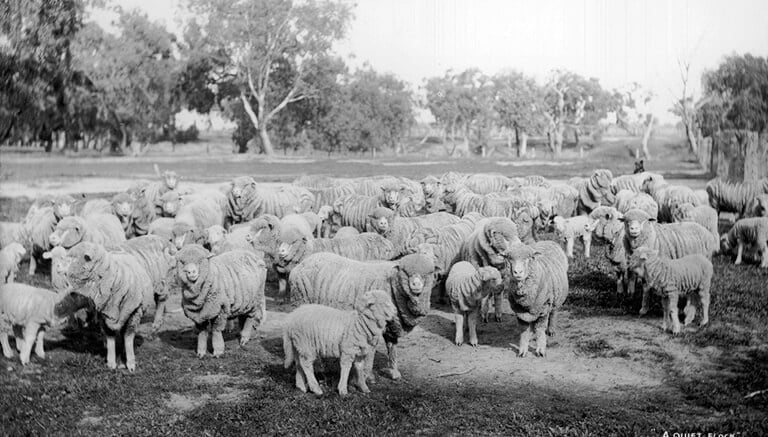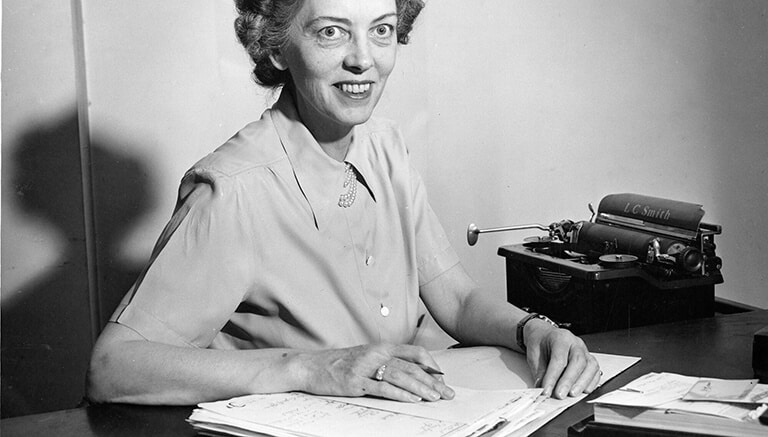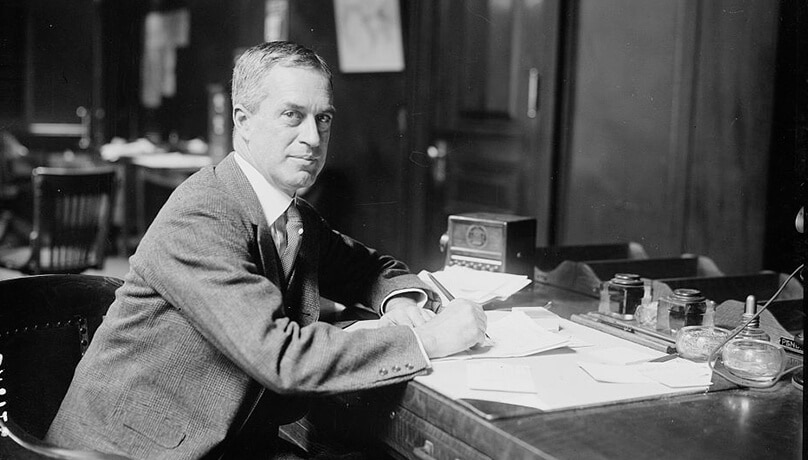How to make the most of attending an academic conference
Attending an academic conference is an excellent way to level up your professional connections and your overall knowledge. They offer the perfect place to exchange ideas, share new insights, and discuss important research with your peers. They can also be a great way to discover new opportunities for grants and funding.
As fruitful as attending an academic conference can be, they can also be nerve-wracking – especially if you’ve never been to one before. If you’re unsure how to get the most out of an academic conference, this article is for you.
Read on to find out how you can make the most of academic conferences. We’ll highlight top tips that will make sure you leave the conference better connected, up-to-date on your academic field, and bursting with new ideas.
The benefits of attending an academic conference
Academic conferences play an important role in the world of academia. They allow academics to get together with like-minded peers and share the most recent themes, data and research from their chosen field.
Academic conferences can focus on either a small niche or a broader area of study. Whichever way it’s positioned, they give specialist academics an unrivalled opportunity to learn from a range of other experts who are operating in their field – something that is crucial for academic growth and development.
There are a huge number of delegate benefits when it comes to attending an academic conference. These include:
Getting personal exposure within your academic field
Academic conferences offer the ideal place to share your work and studies with a broad selection of your academic peers. If you’re only attending to learn without showcasing your own work, they also provide an excellent opportunity to network with influential and highly relevant academics.
Both of these opportunities can help solidify your position in your field, making it easier for you to progress in your area of academia.
Finding future collaborations
Networking is crucial for anyone interested in making a name for themselves in their field of study. Academic conferences allow you to meet the key players in your niche, and can help you fast-track important collaborations that will see your research get more traction.
Finding new research opportunities
If you’re researching a particular area and need more insights, academic conferences offer the perfect opportunity to explore recent data and forward-thinking theories all in one place. This can help you accelerate your research more dynamically, helping you achieve more from your research project.
Discovering what’s new in your academic field
Whatever field of academia you’re in, there will always be an ongoing stream of new research and data to keep on top of. Staying up to date can be tricky, especially when you’re deeply focused on your own area of study.
However, academic conferences make it a lot easier. They offer academics a way to come together and collate recent findings and research, helping keep you up-to-date in the general ongoings of your field. Finding out about new research may even inspire you to expand the scope of your own study.

Oasis of Misturata, The Library of Congress via Flickr
How to plan attending an academic conference
It can be difficult to know what to do at an academic conference. Regardless of whether you’re attending an academic conference for the first time or have attended many, they can be potentially stressful events – so it’s important that you prepare well.
Having detailed plans about who you want to meet, what your overall objectives are, and the knowledge you want to acquire will help ensure you get the most out of attending the conference. Below we list some key things you should do to prepare for attending an academic conference:
Research all the talks & papers that will be presented
Ahead of the conference, make sure you thoroughly research all the papers and speakers who are going to attend. This will help you decide which information will be most useful to you and your area of research, and means you won’t miss out on key opportunities to connect with relevant people.
Bear in mind that academic conferences will have a range of academics presenting their work, from the well-known to those who are just starting to break onto the scene. Try not to gravitate just towards the academics whose work you know well, or those who have already made a big name for themself. Instead, give the lesser-known names a chance by researching their work ahead of the conference and deciding if their talk is worth attending.
Bring an audio recorder to record key talks so you can refer back to them
Conferences bombard delegates with a huge amount of information in a very short amount of time. This can make it difficult to digest all the information that’s provided, and “information fatigue” may lead you to miss key information that could really benefit your studies or research. In addition, despite most speakers providing slides to refer to after the conference, these can be harder to follow without the spoken explanation of the research.
Taking a recording device to each talk will give you the best possible chance of digesting all the information presented at the conference. This way, you’ll have the freedom to refer to key points of the presentations when you’re back in the comfort of your home and have more brain space to process all the information. It will also help you write up your conference report with more ease. (We’ll touch on that further on in this article.)
Use a conference App
Depending on the size and scale of the academic conference, you may want to use a mobile application to help you get the most out of the conference.
Conference apps can help you eliminate the mental clutter that comes with attending these types of events. They can help you organise your notes, record talks and even communicate with fellow delegates.
Prepare an elevator pitch about your own research
Whether you’re presenting your own work or not, academic conferences are the perfect place for networking and broadening your connections. That’s why it’s important to make sure you have your own research well articulated and rehearsed ahead of the conference. Work to a succinct and engaging pitch that focuses on inspiration, your methodology, and where you’re going next.
This will give you a better chance of communicating your work to fellow delegates in a compelling and clear way, increasing the potential for collaboration and connections.
Plan your access to each talk
Academic conferences can vary in size. Either way, it’s important you understand the logistics of how to get to each talk you want to attend.
Ahead of attending, make sure you research how to arrive at the venue and how you navigate between conference rooms while you’re there. On some occasions, talks may be happening in different buildings or academic papers displayed elsewhere, so you’ll need to have a clear idea of where you need to go in order to avoid late entrances or missed opportunities.
Plan who you want to network with
Planning who you want to connect with at an academic conference is a great way to make sure you meet the people who will most benefit your research or studies. Networking itself can be quite intimidating for many of us. Let’s talk about how we can make the process as successful and as seamless as possible.

Quiet Flock, Powerhouse Museum via Flickr
How to network at an academic conference
As we’ve highlighted, academic conferences offer academics the perfect opportunity to network with peers. They can help you boost your academic network and plan future collaborations. However, networking is always more difficult in reality – especially if you’re not very experienced at it.
To make networking easier, we’ve highlighted our top tips for networking at an academic conference.
Tips for networking at academic conferences
Plan who you want to connect with ahead of the conference
It’s important to plan who these people might be ahead of the conference so that you give yourself the best chance of being able to network with them.
Write a list of the people you want to talk to and what you want to talk about. This process will give you a clear goal, and make the process seem a lot more methodical. It will also make networking more fruitful, as you’ll be more likely to talk to more relevant people. Take a look at their profiles and familiarise yourself with their appearance if you don’t already know what they look like so you can spot them in the crowd.
If you don’t have a specific person you want to connect with , but know that you want to network with people from a certain area of study or particular organisation, you can also plan ahead.
Research the talks that those people are more likely to attend and make sure you go to them. Don’t be afraid to ask questions at the end of talks, and use that opportunity to announce to the room that you’re looking to network with people with similar areas of interest. This way, more people will approach you.
Arrange to talk to key people ahead of the conference
Pre-arranging meetings can make the thought of networking easier, and it’s perfectly appropriate to do so.
If the people you want to connect with are listed as attendees or speakers, you can contact them in advance via email to arrange a meeting. This can be a coffee or drink, or even a joint attendance to a particular talk. Connecting with them via email or another platform ahead of time also gives you the opportunity to outline your studies and research in advance, allowing you to enjoy a more detailed discussion when you finally meet in person.
Go to smaller seminars
Some conferences will have smaller seminars that involve more open discussion. These are a great place to find people to talk with, as open conversation is encouraged more between delegates. These are also a great place to discuss academic papers.

Jane Stafford, Smithaonian Institution via Flickr
Writing a report after attending an academic conference
There is a lot of information that needs digesting after attending a conference. You may even be asked to relay your findings to colleagues or peers who weren’t able to attend the event. Writing a report after attending an academic conference will help you retain key information and share clear findings with others.
How to write a report after attending an academic conference
Writing an academic conference report is a really useful and simple thing to do. The idea is that you include the key information about the event, the speakers and the conference’s themes, along with contact information needed to follow up with any questions. It’s best to do this as soon as possible after the event when the details are at their freshest.
A conference report will require some planning ahead of time to make sure you get all the right information while you’re there. So, before you head to the academic conference collate the following information:
- The organisers of the conference and their background
- The purpose/theme of the conference
- The number of people in attendance
- Where the conference was held
- Information on any key speakers/people of importance. (Include details of positions, sector, university, research institute etc)
- Outline the topics each speaker focused on in their papers/talks
- Include photos of the conference
- Links to presentations (often speakers will share their slides)
- Contact phone numbers, email address and social handles of all key speakers.
Once you have all this information, you can collate it into a word document, Google Doc or presentation that you can keep for reference and share with your peers.
Attending an academic conference – your checklist
You should now have a good idea of how to get the most of an academic conference. But to make sure you’re covered, we’ve created an “attending an academic conference checklist” below. This will help make sure you avoid any academic conference mistakes, and help you plan everything you need in advance.
Attending an academic conference checklist:
- Plan your travel and accommodation
- Research the speakers
- Plan the talks you’re going to attend
- Reach out to people you want to network with ahead of time
- Prepare your elevator pitch for your own work for networking
What to bring to an academic conference:
- Laptop + charger
- Portable battery charger
- Notebooks
- Pencils/pens
- Business cards
- Copies of your academic papers/work
- Easy access to web links of your work to share with peers (relevant articles, presentations etc)
- Smartphone with camera to take photos (or camera)
- Audio recording device / relevant app
Academic conference venue in London
If you are involved in the planning of an academic conference, 20 Bedford Way is the perfect place to host it.
As an academic venue, we are very experienced when it comes to hosting successful academic conferences. Our biggest venue, Logan Hall, can accommodate over 900 people, while we also have a number of smaller spaces equipped with all the necessary facilities. We also have plenty of breakout spaces that can help facilitate networking amongst attendees, and a/v technicians on hand to make sure everything goes ahead without a hitch.
If you are interested in holding an academic conference in London contact us on 020 7612 6143 or email us at venuehire@ioe.ac.uk.
We’ve also put together this guide to organising your own academic conference,
Main image: Arthur Woods, The Library of Congress via Flickr




